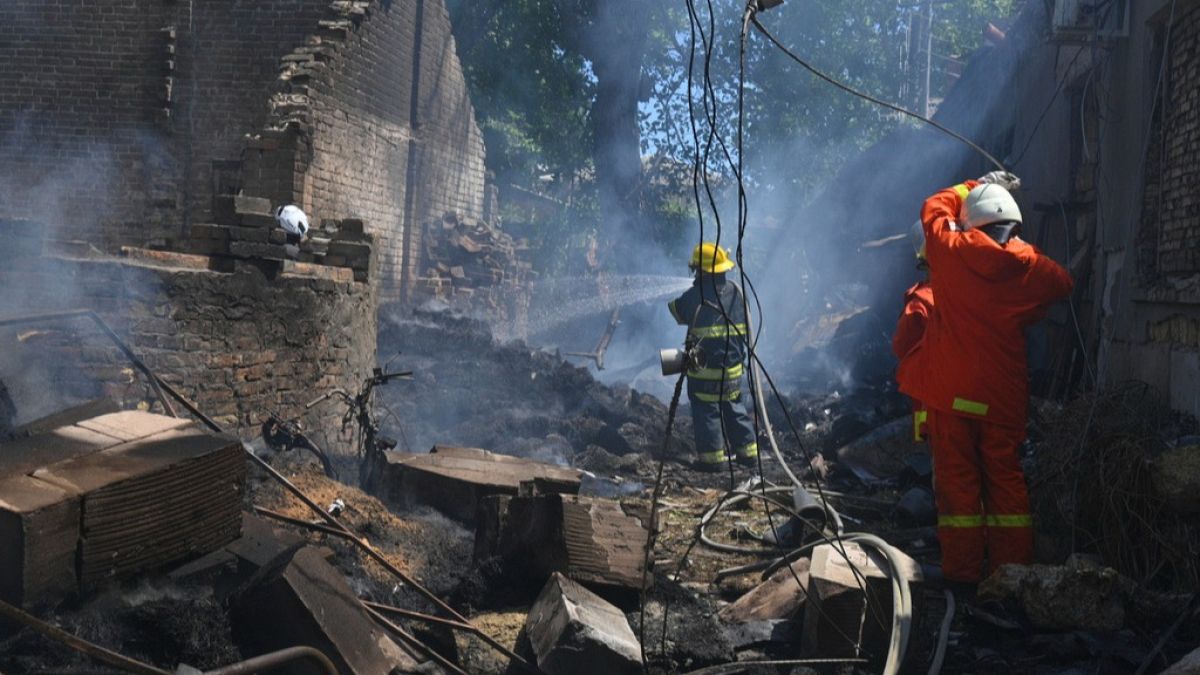

Recent events have escalated in both Ukraine and Gaza, impacting lives and prompting international responses. These unfolding situations emphasize the need for careful and mindful attention to conflict resolution and humanitarian aid.
In Ukraine, a significant aerial assault was recorded, involving a total of 741 drones and missiles, marking one of the largest since the onset of the conflict. The Ukrainian President, Volodymyr Zelenskyy, responded by condemning this escalation, viewing it as an attempt by Russia to intensify its intimidation efforts. He called on Western allies to consider further sanctions, stressing that the path to peace lies in demonstrating strength. His remarks underscore the continued tensions and the complex dynamics at play in seeking resolutions to the ongoing conflict.
The impact of these hostilities is stark, particularly for civilians whose lives are deeply affected. The need for a robust international dialogue aimed at resolving the conflict and addressing humanitarian concerns is increasingly urgent. Despite the military confrontations, efforts towards negotiations and peaceful settlements are hoped for by many observers who see dialogue as pivotal.
Meanwhile, in the Middle East, the long-standing conflict between Israel and Gaza has seen a tragic increase in casualties. Health officials in Gaza have reported the death toll surpassing 58,000, with a significant number being women and children. A recent Israeli airstrike resulted in the tragic loss of ten lives, six of whom were children, at a water collection station. This follows a series of violent incidents over the weekend, including another airstrike on a home that claimed nine lives and the shooting of thirty-one individuals near an aid distribution center.
The Israeli military has stated that its operations target militant activities, but concerns about civilian safety and collateral damage remain pressing issues. A technical error was cited in one incident, illustrating the complexities and risks involved in populated areas. Further, the discussions around responsibilities and the conduct of military operations continue to be areas of international scrutiny and debate.
The broader context of these events highlights the interplay of regional politics, humanitarian needs, and the quest for peace. In the West Bank, tensions continue with reports of violence between settlers and Palestinians. This follows a recent funeral for two young men caught in a tragic confrontation, shedding light on the personal stories within broader conflict narratives.
Throughout these challenging times, humanitarian organizations and diplomatic channels strive to offer relief and pave the way for dialogues. Global calls for restraint and a focus on peaceful resolutions echo in diplomatic corridors, underscoring the importance of a unified effort to reduce hostilities and protect civilian lives.
In summary, while recent events in Ukraine and Gaza highlight deep and ongoing challenges, the collective hope remains for a future where dialogue and peace take precedence. The commitment to rebuilding and finding diplomatic solutions remains crucial as the international community continues to engage with these pressing issues.
Source: {link}
